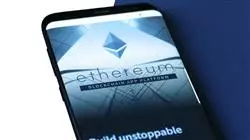University certificate
The world's largest faculty of information technology”
Description
Smart Contracts are already a reality: specialize in Blockchain applied to this type of contracts and achieve professional success"

From recording transactions of various kinds, to tracing the provenance of animals and raw materials, Blockchain technology has burst onto the economic and business scene with great force. Therefore, this tool has been consolidated in many important areas, and one of them is the legal one. In this way, the concept of Smart Contract has emerged to describe the type of contract designed and executed using blockchain.
These contracts have many advantages: they are executed automatically, following the rules previously designed in the blockchain in question, they are very transparent, since the order of operations performed can be followed, and it is immutable, so it offers great security to all parties involved. For that reason, this postgraduate diploma in Blockchain and Smart Contract Development is a great opportunity for all those who wish to specialize in this sector with so much potential.
This qualification offers them the possibility to learn about the latest developments in aspects such as public Blockchains, especially Ethereum, Stellar and Polkadot, among many other issues. All this, following a 100% online teaching methodology that adapts to the circumstances of each student, and receiving the accompaniment of a high-level faculty that, through multimedia teaching content, will transfer all the keys about Blockchain and Smart Contracts.
Develop Blockchains dedicated to the execution of Smart Contracts with this postgraduate diploma"
The postgraduate diploma in Blockchain and Smart Contract Development contains the most complete and up-to-date educational program on the market. Its most notable features are:
- The development of case studies presented by Blockchain experts
- The graphic, schematic, and practical contents with which they are created, provide scientific and practical information on the disciplines that are essential for professional practice
- Practical exercises where the self-assessment process can be carried out to improve learning
- Its special emphasis on innovative methodologies
- Theoretical lessons, questions to the expert, debate forums on controversial topics, and individual reflection work
- Content that is accessible from any fixed or portable device with an internet connection
Clients, entrepreneurs and investors need greater confidence when carrying out their operations and transactions and you can provide that with this qualification”
The program’s teaching staff includes professionals from the sector who contribute their work experience to this training program, as well as renowned specialists from leading societies and prestigious universities.
The multimedia content, developed with the latest educational technology, will provide the professional with situated and contextual learning, i.e., a simulated environ ment that will provide immersive training programmed to train in real situations.
This program is designed around Problem-Based Learning, whereby the professionals must try to solve the different professional practice situations that arise throughout the program. This will be done with the help of an innovative system of interactive videos made by renowned experts.
Specialize in Smart Contracts and make rapid career advancement in the IT world"

Smart Contracts are one of the major applications of Blockchain technology. Don't miss this opportunity to delve deeper into this area with TECH"
Objectives
The main objective of the postgraduate diploma in Blockchain and Smart Contract Development is to provide computer scientists and engineers with the most innovative knowledge about this technological field, so that they can put it into practice in their professional careers. Blockchain is here to stay, and requires professionals to keep up to date, so this qualification is perfect for them, as it provides them with the latest developments in the discipline.

You'll be the biggest Smart Contracts specialist in your field”
General Objectives
- Determine the extent to which information can be collected from Wallets that are physically available and the extent to which information can be collected only when an address is held
- Draw conclusions regarding good security practices
- Consider the vulnerabilities associated with Blockchain
- Generate specialized knowledge about Ethereum as a public Blockchain
- Examine the Stellar platform
- Specialize computer engineers in Polkadot and Substrate
- Analyze the future impact of development on public blockchains
- Assess the impact on data privacy and security that current digital identity models present
- Examine the main advantages for citizens of implementing self-sovereign digital identity models
- Identify the benefits of using Blockchain technology for the deployment of digital identity-based solutions
- Compile use cases in which Blockchain-based Digital Identity Models are transforming organizations' processes
Specific Objectives
Module 1. Blockchain Technology: Technologies Involved and Cyberspace Security
- Establish methodologies for information analysis and deception detection on the Internet
- Plan an Internet search strategy
- Determine the most appropriate tools to detect a criminal act on the Internet
- Deploy an environment with the following tools: Logstash, Elasticsearch and Kibana
- Address the risks faced by analysts in a research exercise
- Conduct research processes based on wallet or address availability
- Identify possible indications of mixers being used to blur transaction trails
Module 2. Public Blockchain Development: Ethereum, Stellar and Polkadot
- Broaden skills in the world of blockchain development
- Develop practical examples based on cases
- Compile generic knowledge about blockchains in practice
- Analyze the operation of a public Blockchain
- Gain experience in Solidity
- Establish a relationship between the different public Blockchains
- Create a project on a public Blockchain
Module 3. Sovereign Identity Based on Blockchain
- Analyze the different Blockchain technologies that enable the development of Digital Identity models
- Analyze self-sovereign digital identity proposals.
- Assess the impact on public administration of implementing self-sovereign digital identity models
- Foundations for developing Blockchain-based Digital Identity solutions
- Generate specialized knowledge on Digital Identity
- Analyze what can be done with this technology
- Determine the inner workings of identities in Blockchain

Learn all the latest news about Blockchain applied to Smart Contracts with this high-level qualification"
Postgraduate Diploma in Blockchain and Smart Contract Development.""
.
Blockchain is a distributed ledger technology (DLT) that functions as an online, decentralized shared ledger, which keeps a digital record of all transactions made. The technology is used in a variety of applications, such as cryptocurrencies like Bitcoin and Ethereum, but it is also being used in other sectors such as banking, medicine and logistics.
To create a blockchain, several important components are needed, one of which is software that can store and verify records. Each block in the chain must contain information about the previous one, which helps ensure its integrity and security.
On the other hand, """"smart contracts"""" are digital legal contracts that are automatically executed when certain preset conditions are met. They are designed to make transactions faster, more efficient and reduce the need for intermediaries. These contracts use blockchain technology to record and verify each transaction.
The creation of a smart contract begins with the definition of the conditions that must be met for the contract to be triggered. Then, these conditions are coded into a smart contract using a programming language such as Solidity (used in Ethereum). Once the terms have been set and the code has been written, the smart contract is uploaded to the corresponding blockchain and is ready for execution. Thereafter, whenever the conditions necessary to activate the contract are met, the blockchain automatically processes the transaction. This transaction is permanently recorded on the blockchain, so the smart contract remains operational and enforceable.
The goal of the program is to provide students with advanced knowledge and practical skills for the design, implementation and use of blockchain and Smart contract technology. Students will learn how to use advanced programming, data structures and cryptography for smart contract development.







